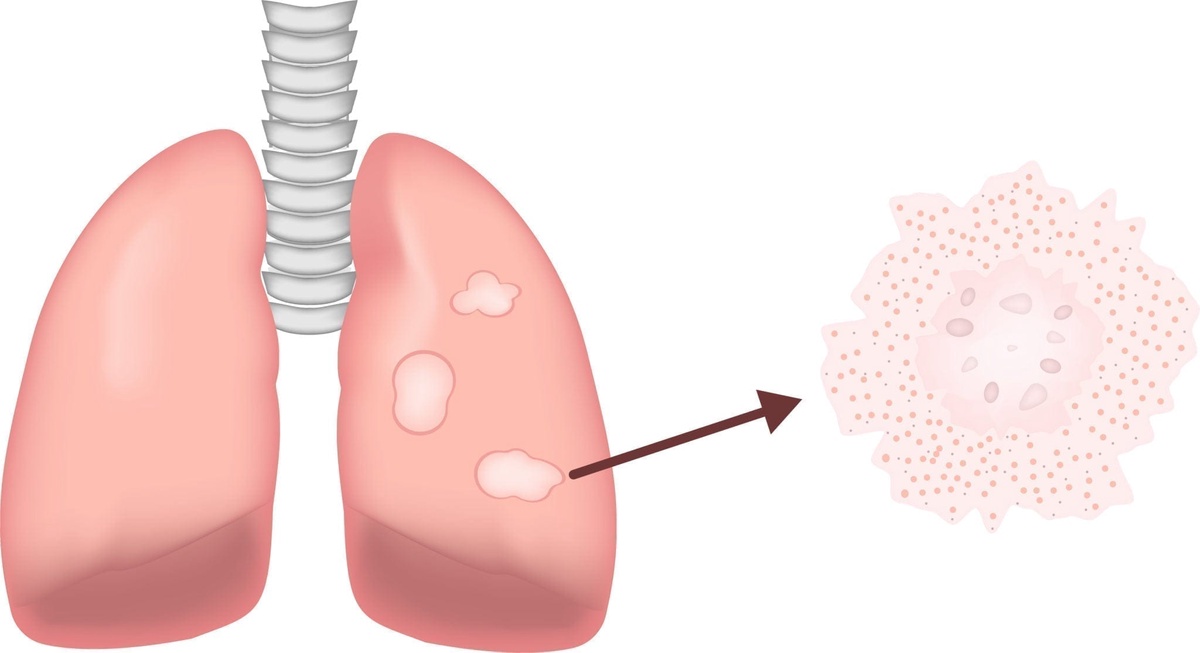Lung sarcoidosis is a complex and often challenging medical scenario that requires careful management and treatment. Sarcoidosis is an inflammatory condition impacting multiple organs, but when it involves the lungs, it becomes particularly critical. Keep reading this blog post to delve into the intricacies of lung sarcoidosis, discussing what it is, its symptoms, and, most importantly, the common mistakes to avoid during the treatment journey.
Understanding Lung Sarcoidosis
Lung sarcoidosis is a granulomatous disorder characterized by the formation of small, inflammatory nodules known as granulomas. These nodules can disrupt the usual structure and operation of the lungs, resulting in symptoms like an enduring cough, breathlessness, and chest discomfort. Although the precise cause of sarcoidosis remains elusive, it is thought to stem from a combination of genetic predisposition and environmental influences.
Symptoms of Lung Sarcoidosis
Persistent Cough: A persistent, nagging cough is a hallmark symptom of lung sarcoidosis. The inflammation and granuloma formation in the lungs can irritate the airways, leading to an ongoing cough that may worsen over time.
Shortness of Breath: As lung function is compromised by the granulomas, individuals with sarcoidosis often experience shortness of breath. This symptom can vary in intensity, ranging from mild discomfort to severe respiratory distress.
Chest Pain: Chest pain may occur due to inflammation in the lungs or surrounding tissues. It is essential to differentiate between sarcoidosis-related chest pain and other potential causes to ensure accurate diagnosis and targeted treatment.
Fatigue: Chronic fatigue is a pervasive symptom in individuals with lung sarcoidosis. The body's increased inflammatory response and the energy expended in combating the disease contribute to persistent tiredness.
Fever: Sarcoidosis can induce systemic responses, including fever. While not always present, an unexplained fever may be an indicator of the inflammatory processes occurring within the body.
Weight Loss: In some cases, individuals with lung sarcoidosis may experience unintentional weight loss. This can be attributed to a blend of factors, including reduced appetite and the energy demands associated with the body's inflammatory response.
Mistakes to avoid during the journey of lung sarcoidosis treatment:
Delaying Medical Consultation
One of the most significant mistakes individuals make is delaying consultation with a healthcare professional. Early diagnosis and intervention are necessary for managing lung sarcoidosis effectively. If you experience persistent respiratory symptoms, seek medical attention promptly.
Self-Medication
Some individuals resort to self-medication or alternative therapies without proper medical guidance. Lung sarcoidosis requires a personalized treatment plan crafted by healthcare professionals based on thorough assessments. Self-medicating can lead to complications and hinder the effectiveness of prescribed treatments.
Neglecting Regular Follow-ups
Regular follow-ups with your healthcare provider are essential in monitoring the progression of lung sarcoidosis and adjusting the treatment plan accordingly. Neglecting these appointments can result in missed opportunities to address emerging issues or optimize the treatment strategy.
Ignoring Lifestyle Modifications
Treatment for lung sarcoidosis often involves lifestyle modifications such as quitting smoking, adopting a healthy diet, and incorporating regular exercise. Ignoring these recommendations can impede the overall effectiveness of treatment and compromise long-term lung health.
Incomplete Understanding of Medications
Patients sometimes fail to comprehend the importance of their prescribed medications or the potential side effects. It is crucial to have a thorough understanding of the prescribed drugs, adhere to the recommended dosage, and communicate any concerns or side effects promptly to the healthcare provider.
Overlooking Emotional Well-Being
Living with a chronic condition like lung sarcoidosis can take a toll on emotional well-being. Ignoring the psychological aspect of the journey can hinder the overall quality of life. Seeking guidance from mental health professionals or support groups is essential for coping with the emotional challenges associated with the disease.
Inconsistent Monitoring of Symptoms
Monitoring symptoms consistently is vital in managing lung sarcoidosis effectively. Keeping a symptom diary can help track changes, enabling timely intervention. Ignoring or downplaying symptoms may lead to complications and delayed adjustments to the treatment plan.
Non-Compliance with Treatment Plan
Adherence to the prescribed treatment plan is paramount in controlling lung sarcoidosis. Skipping medications or deviating from the recommended course can compromise the treatment's effectiveness and potentially exacerbate the condition.
Failure to Communicate
Establishing clear and concise communication between patients and healthcare providers is essential. Some individuals may hesitate to communicate changes in symptoms or concerns, fearing judgment or inconvenience. Open and honest communication ensures that healthcare professionals can provide the best possible care.
Lack of a Support System
Facing lung sarcoidosis alone can be overwhelming. Establishing a robust support network, including family, friends, and healthcare professionals, can significantly impact the journey. A robust support network provides emotional assistance and practical help in managing the challenges associated with the condition.
Summary:
In the intricate journey of lung sarcoidosis treatment, avoiding these common mistakes is crucial for achieving optimal outcomes. By prioritizing early intervention, understanding the prescribed treatment plan, and nurturing a supportive network, individuals can navigate the challenges of lung sarcoidosis with resilience and improved quality of life. Always remember, informed decisions and proactive collaboration with healthcare professionals are fundamental in the pursuit of holistic lung health.


No comments yet